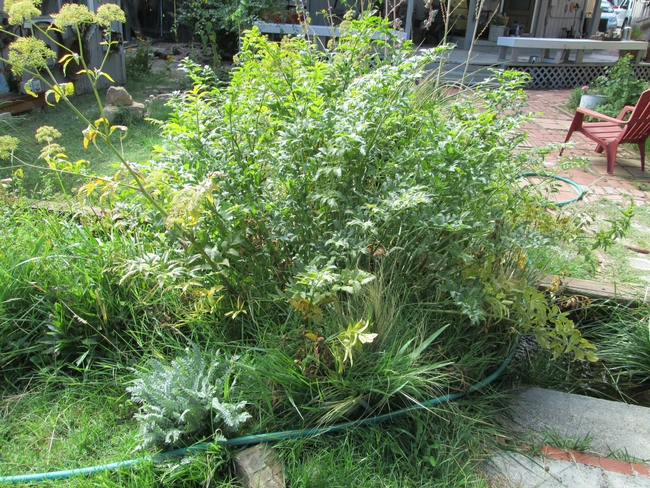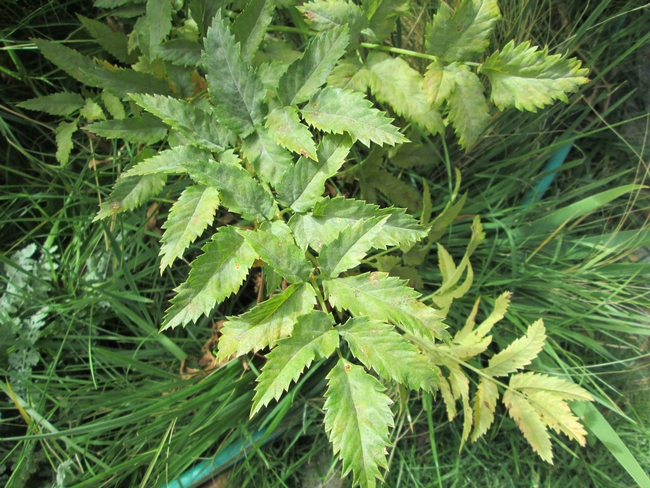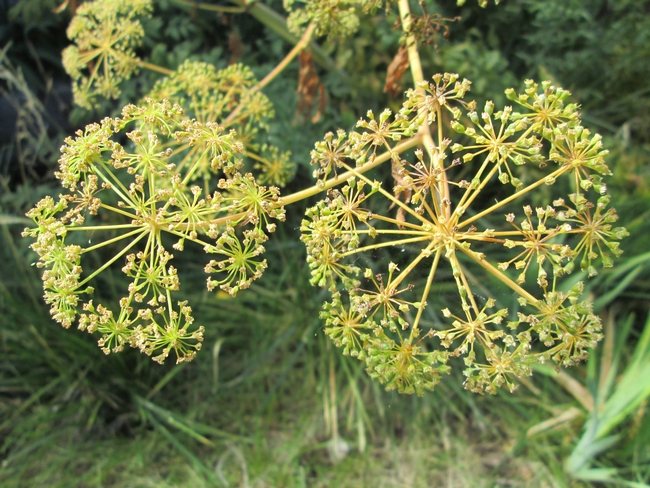One of my neighbors in West Bishop noticed a pretty, white-flowered plant that had volunteered on the banks of a ditch that ran through the end of her garden. It had been identified as the extremely poisonous water hemlock, (Cicuta douglasii) and since I was unfamiliar with this particular plant I went to check it out. This is a different plant from poison hemlock (Conium) but it is just as dangerous!
The plants were about 3ft tall and the foliage was a lush green – a picture of health, and not so very different in appearance from celery, but eating this neurotoxin-loaded plant (described by the USDA as "the most violently toxic plant in North America") will cause seizures, convulsions and death as quickly as 15 minutes following consumption. Plant parts remain poisonous even when dried. This species is perennial and has large fleshy roots and although it does grow in the wild around West Bishop, and no doubt many other damp places in the area, it could pose a serious danger to children and pets if allowed to grow in our yards.
The small flowers are produced on umbel-shaped clusters (umbrella shaped), typical of the Apiaceae or Umbelliferae family of plants which is vast and varied, encompassing 434 genera and about 3,700 species and ranging from extremely poisonous plants such as hemlock to popular edibles such as carrots, celery and parsley.
If you see a plant that resembles a carrot that you can't be 100% sure you've identified it correctly, you should avoid eating it. (That is usually a good idea!)
In this case, the neighboring house also had a plant growing and the owners were unaware of it. Most likely the seed heads fall into the ditch and get distributed down-stream. This may result in it becoming more widely distributed and eventually spreading to pastureland, where it could pose a danger to livestock.
This article has information on management of water hemlock and has a convenient comparison between it and poison hemlock: https://extension.oregonstate.edu/crop-production/pastures-forages/poison-hemlock-western-waterhemlock-deadly-plants-may-be-growing .
And the fact sheet attached as a link below has extensive information about this toxic pest.


